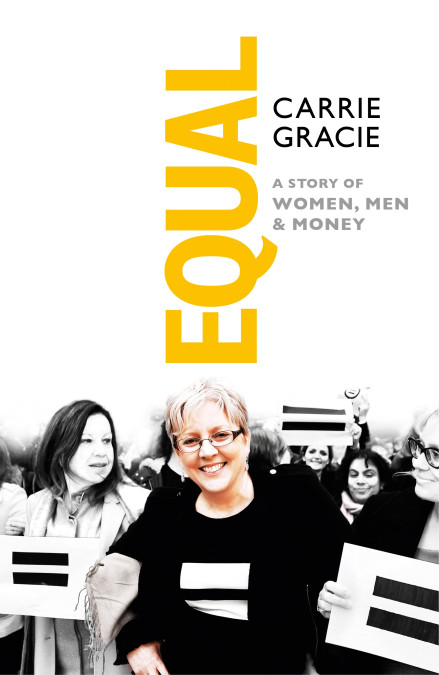‘Equal’ and Carrie Gracie
I went last week to a packed meeting of the Global Institute for Women’s Leadership at Kings College London, to hear Carrie Gracie talking about her book Equal: A Story of Women, Men and Money. Carrie was in conversation with Julia Gillard, ex-PM of Australia and leader of the GIWL. As Carrie pointed out, Julia was impressively well-prepared, with a postit-festooned copy of the book, and the two women’s dialogue flowed along very well.

The story is that of Carrie’s discovery that as BBC’s China Editor she was not being paid the same as her male BBC equivalents, in spite of explicit assurances that this would be the case, made in order to persuade her to take the job. She had two teenage children in London, as a single parent, and had fairly recently recovered from cancer, so making the decision was not an easy one, and the push to do so came from her employers. The story, therefore is one of betrayal by and then struggle with an institution in which she was and is thoroughly invested, You should get the book in order to read it. I was happy to buy a copy for my grand-daughter’s birthday as she set off to start student life (having already, as it happens, had to fight for a more equal wage during her gap year as an actor).
At one stage in the whole process the Beeb came up with a supposed rationale for the pay difference: that Carrie was still ‘in development‘, unlike her comparator (Jon Sopel, the North American editor) who was the fully formed product. This is pretty laughable, since she had 30 years’ experience as a journalist with deep Chinese specialism – and they had specifically come to her as the only person who could do the job. But this phrase has particular salience in relation to the Paula Principle.
For we know very well that women are not only better qualified on average at the outset of their careers; they are more likely to put themselves forward for training during the course of their careers. This is partly because women are more likely to work in the public sector, which is more generous with its training opportunities. But it’s also because women are more likely to acknowledge that they have a gap in their competences, and therefore need to learn something new. (They may even engage in learning just to be able to demonstrate that they have acquired the requisite skill, even if they already had it…)
The point is: do we want to encourage people to keep learning – or ‘developing’? Whilst it may be fair to pay someone less if they really are an apprentice starting out and learning the job, it’s pretty discouraging for an organisation to penalise someone who has the competence to do the job but is learning more – if such had been the case with Carrie. But there’s no sign that the BBC thought she did have to learn anything in order to do the job even better. I suppose it might conceivably have made sense if they had at the same time been offering to pay her to take time off and do some massively expensive training course on some quite new aspect of the job, but this was not remotely the case.
Short-changing (not quite the right term for a pay gap of over £50K, but you get my meaning) someone on the grounds that they are still developing would have been a poor message to send out even if it had been true. Hardly the kind of model that one of our most prominent public institutions should be giving on the value of adult learning….
One further plug: Julia Gillard’s podcasts on the GIWL website – A Podcast of Your Own – are well worth a listen, judging from the two I’ve listened to: with Helena Morrissey and Caroline Criado-Perez. I was until now a podcast virgin, but need to do more walking, so plugging into these has made going round the heath far easier – and instructive.
